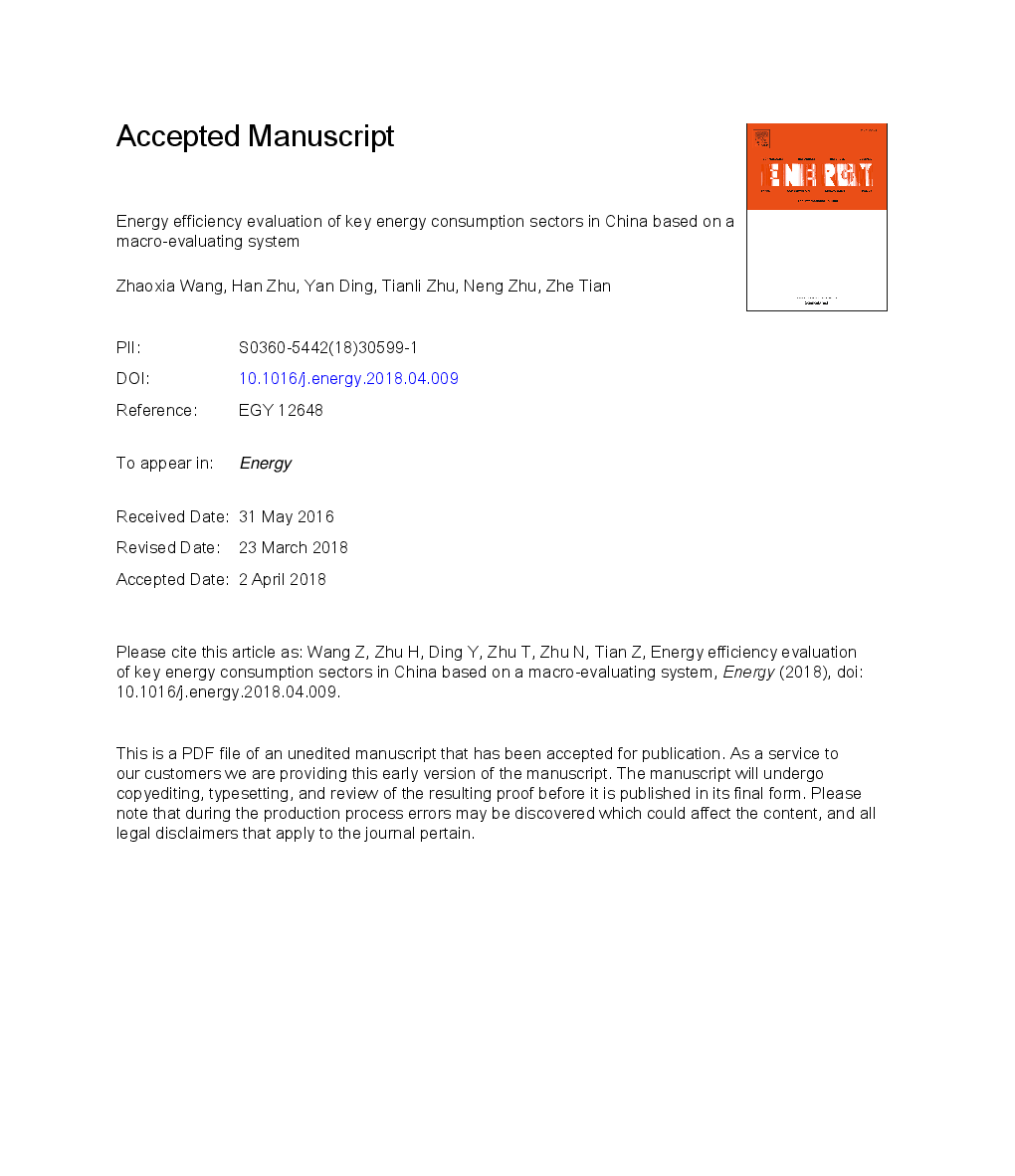ترجمه فارسی عنوان مقاله
ارزیابی کارایی انرژی بخش های اصلی مصرف انرژی در چین بر اساس یک سیستم ارزیابی کلان
عنوان انگلیسی
Energy efficiency evaluation of key energy consumption sectors in China based on a macro-evaluating system
| کد مقاله | سال انتشار | تعداد صفحات مقاله انگلیسی |
|---|---|---|
| 89758 | 2018 | 61 صفحه PDF |
منبع

Publisher : Elsevier - Science Direct (الزویر - ساینس دایرکت)
Journal : Energy, Volume 153, 15 June 2018, Pages 65-79
ترجمه کلمات کلیدی
سطح کارایی انرژی، بخش مصرف انرژی، سیستم ارزیابی مکانیکی، روند سلسله مراتب تحلیلی با دلفی، روش درجه همبستگی خاکستری،
کلمات کلیدی انگلیسی
Energy efficiency level; Energy consumption sectors; Macro-evaluating system; Analytic hierarchy process with Delphi; Grey correlation degree method;

